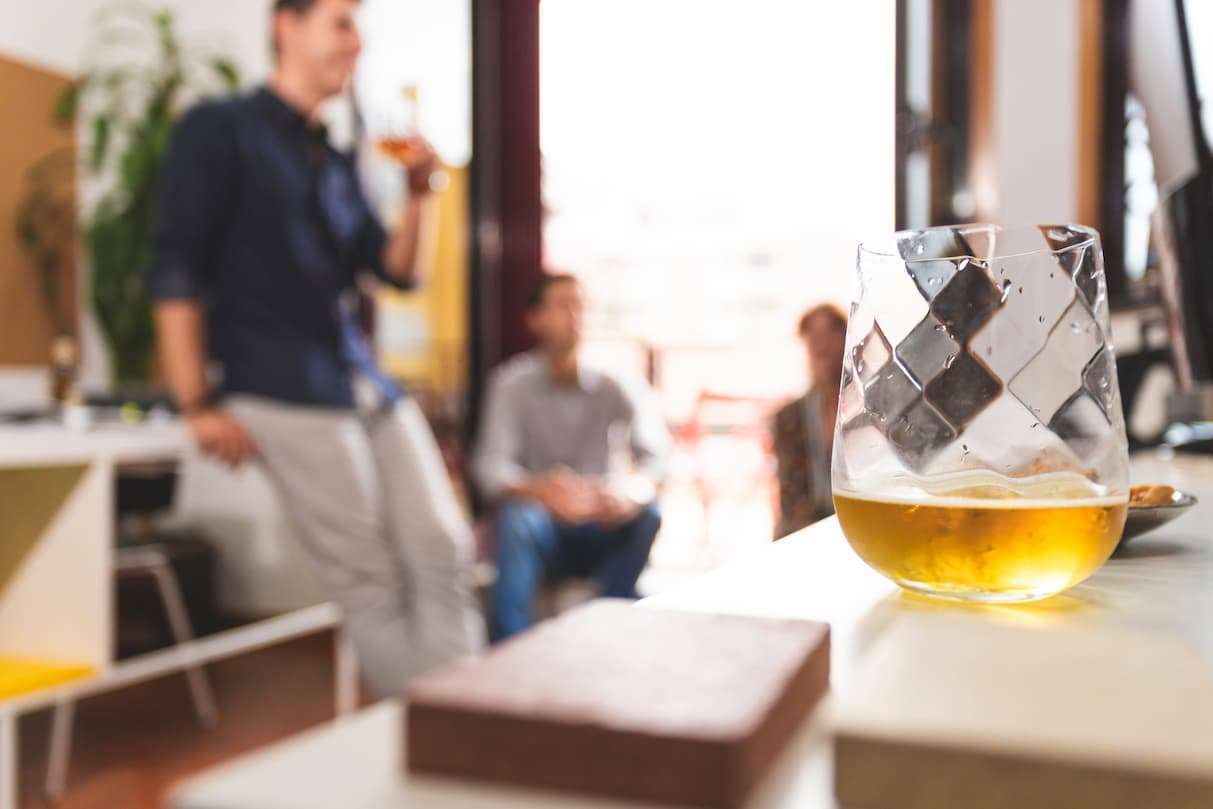Alcohol cravings can be a significant challenge for individuals looking to modify their relationship with alcohol. Whether you’re aiming to reduce your alcohol consumption, limit it to a specific amount, or quit altogether, cravings can make it difficult to stay on track. Understanding the science behind alcohol cravings can provide valuable insights into why how to stop alcohol cravings they occur and how to effectively manage them. Read on to learn more about the causes of cravings, practical strategies to handle them, and long-term approaches to changing your relationship with alcohol. Some of these tips may be more helpful early in your efforts to change your drinking habits, whether your goal is to cut back or to stop drinking entirely.
- Distraction is a great tactic to get your mind off of the craving you’re having.
- While they can be uncomfortable and challenging, they become less intense and easier to manage over time.
- There’s no way to determine exactly how long an individual will continue to experience alcohol cravings, but we can look at common patterns to help give us an idea of what to expect.
If you ever find yourself wondering, “why am I craving alcohol,” there are probably several reasons. Here are the most common factors which feed into that strong urge to drink. Alcohol cravings are a consequence of alcohol’s interaction with your brain chemistry.
Tips and Ways to Deal with Urges and Cravings to Drink
Cravings tend to be worse when a person has tried to detox from alcohol several times in the past. Alcohol withdrawal symptoms, such as sweating, nausea, tremor, anxiety and insomnia, can increase the drive to drink because a person may feel that drinking will alleviate their discomfort. A person may experience alcohol cravings for various reasons.
- Participation in one or more of these levels of care can help an individual access the care they need, allowing them the opportunity to develop a strong foundation for recovery.
- This will help you to anticipate cravings and plan how to deal with the triggers.
- However, reducing your alcohol intake can lead you to experience cravings for alcohol.
You may also choose to attend self-help groups, receive extended counselling, or use a talking therapy such as cognitive behavioural therapy (CBT). Physical fitness causes your brain to release endorphins which help you feel better when feeling weak or struggling emotionally. Bananas and other foods rich in potassium are a smart choice during recovery. They help increase your serotonin and dopamine neurotransmitters that help with anxiety and depression related to the recovery process. Kavanagh, David, et al. “Measurement of alcohol craving.” Addictive Behaviors, February 2013.
step facilitation therapy
Cravings may occur because a person expects to feel relief from drinking. Whether you’re sober curious, know for sure you’re ready to quit, or fall somewhere in between, Dr. Streem shares advice for how to stop drinking. If you’re living with alcohol use disorder (also known as alcoholism), you’ll likely benefit from additional medical interventions. This can be a helpful strategy early in your efforts to change your drinking and manage your urges. Have friends over for dinner that you make (unless drinking heavily while you’re cooking is part of your routine).

Alcohol cravings can be a challenging aspect of trying to quit drinking or maintain sobriety. Despite the best of intentions, the urge to drink can be strong, making it difficult to stick to a plan to quit. Understanding what causes alcohol cravings and how to manage them can help you on your path to sobriety.
Managing alcohol cravings in the moment
It’s normal for certain stimuli to cause a reaction in your mind and body without even being aware of it. Understanding these cues can help a person predict them, prepare for them, and act against many of them. Calling or texting a friend, family member, or another trusted individual can be a form of distraction and support. Alcohol increases activity in brain areas related to reward processing, which produces rewarding or pleasurable effects.

Once a person identifies the activities and situations that can cue their cravings, they can work to avoid some of them. For activities and situations a person cannot or does not want to avoid, they can use strategies to overcome the cravings that occur. When they occur, alcohol cravings can feel overwhelming, even if they last only a few minutes. During this time, the brain transitions from incentive salience to habit formation. This can make it more likely a person will continue to consume alcohol. It can also make it more difficult for them to stop using alcohol.
How to stop alcohol cravings with a plan for success
His hobbies include physical fitness, reading, and social entrepreneurship. Naltrexone – it is administered after general detoxification, as an anti-craving medication https://ecosoberhouse.com/ for alcohol. The drug acts to block receptors that provide the “Alcohol High” in the brain. Alcohol is one of the most common beverages consumed in today’s society.
In addition to feeling less anxious and having better digestion, you may notice bigger changes a few months into sobriety. For instance, your doctor might find that your heart and liver are in better shape, or your skin may have a certain new glow. Alcohol cravings can be difficult to manage alone, and there’s no shame in needing a little extra support.
Long-term management strategies for alcohol cravings
It is better to accept them as normal and actively treat them through a variety of methods, including possibly taking medication. Generally, the more alcohol you drink on a regular basis, the longer it takes for cravings to subside. Internal triggers are thoughts, feelings, sensations, and beliefs inside you that feed your cravings for alcohol. As your cravings for alcohol become more manageable, you may decide to try reintroducing situations that previously triggered your temptation to drink. SELF does not provide medical advice, diagnosis, or treatment. Any information published on this website or by this brand is not intended as a substitute for medical advice, and you should not take any action before consulting with a healthcare professional.